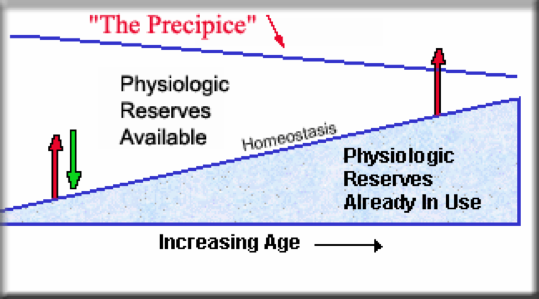This article could have been entitled "Aging: We All Do it, But Why?" Dr. I.N. Love wrote about this subject in an article entitled, "The Needs and Rights of Old Age" (JAMA, Nov. 29, 1897).
No, the date of Dr. Love's publication in the Journal of the American Medical Association is not a misprint: it was published over 120 years ago about Sir George Humphrey's research on centenarians, that elite group of people who've made it to 100 years of age.
Sir George concluded that "The prime requisite is the faculty of age in the blood by inheritance." And Dr. Love added, that "While heredity is of importance, bear in mind that the deficiencies of heredity can be made up by correct living."
That was pretty good advice then, and still is. Had Dr. Love and Sir George known about the human genome and CRISPR as we do today, they could have been more specific about how the gene sirtuin 6 (SIRT6) repairs double-strand DNA breaks plus our ribosomes and telomeres are the genetic keys to prolong one’s life.
The Question?
Since all living things age, the question is: Why and what can we do about it?
People have been interested in the answer for as long as human beings have been asking questions. So what do Novato, CA; Baltimore, MD; Cambridge, MA; Mankato, MN; Houston and San Antonio, TX have to do with this? In these cities, and in many others throughout North America and the world, gerontologists (scientists who study the aging process) are conducting research on why we age. These scientists also want to know why we age differently, and what can we learn from studying animals and older people that can help you have a good old age.
While there are many definitions and theories of aging, readers can think of their own bodies as becoming increasingly vulnerable to all sorts of stressors from those things we inherit and from those things in the environment to which we're exposed.
Age-Related Changes
So we're not surprised when we turn 40 and our eyesight changes enough for many to need reading glasses or contact lenses: this is called presbyopia – the prefix "presby" meaning old and the suffix "opia" referring to our eyes. Presbyopia is one of those normal age-related changes not necessarily caused by any one of a variety of diseases of the eye.
Other changes in the neurosensory system include hearing loss (presbycusis) and varying degrees of memory impairment. So if you forget where your car keys are, that's OK; it's when you forget that you have a car, then you've got a problem. But that's not normal aging: that's dementia caused by strokes, Alzheimer's disease, and other neurological problems.
Immunity
We experience similar changes in our immune systems, which can affect the extent to which we fight infectious diseases. Our production of antibodies, those soldiers who fight off invading microorganisms and even errant cells that can become cancerous, are impaired with age.
hen a young person gets the flu, they're sick for a few days and get better. For an older person, the flu can kill you. So, just as we get immunizations against childhood diseases like measles, mumps, and chickenpox, older people need immunizations against influenza and pneumonia. And during the 2020-2021 pandemic of SARS-CoVA-2 (COVID-19), we are all awaiting a vaccine to prevent the coronavirus from causing respiratory distress severe enough to kill older people at higher rates than those under age 65.
Reserve Capacity

One of the hallmarks of aging persons is that their reserve capacity narrows considerably. This is known as homeostenosis and illustrated below to indicate how frail elders who experience an infectious disease or trauma just don’t “bounce” back like they did when they were younger and more robust.








